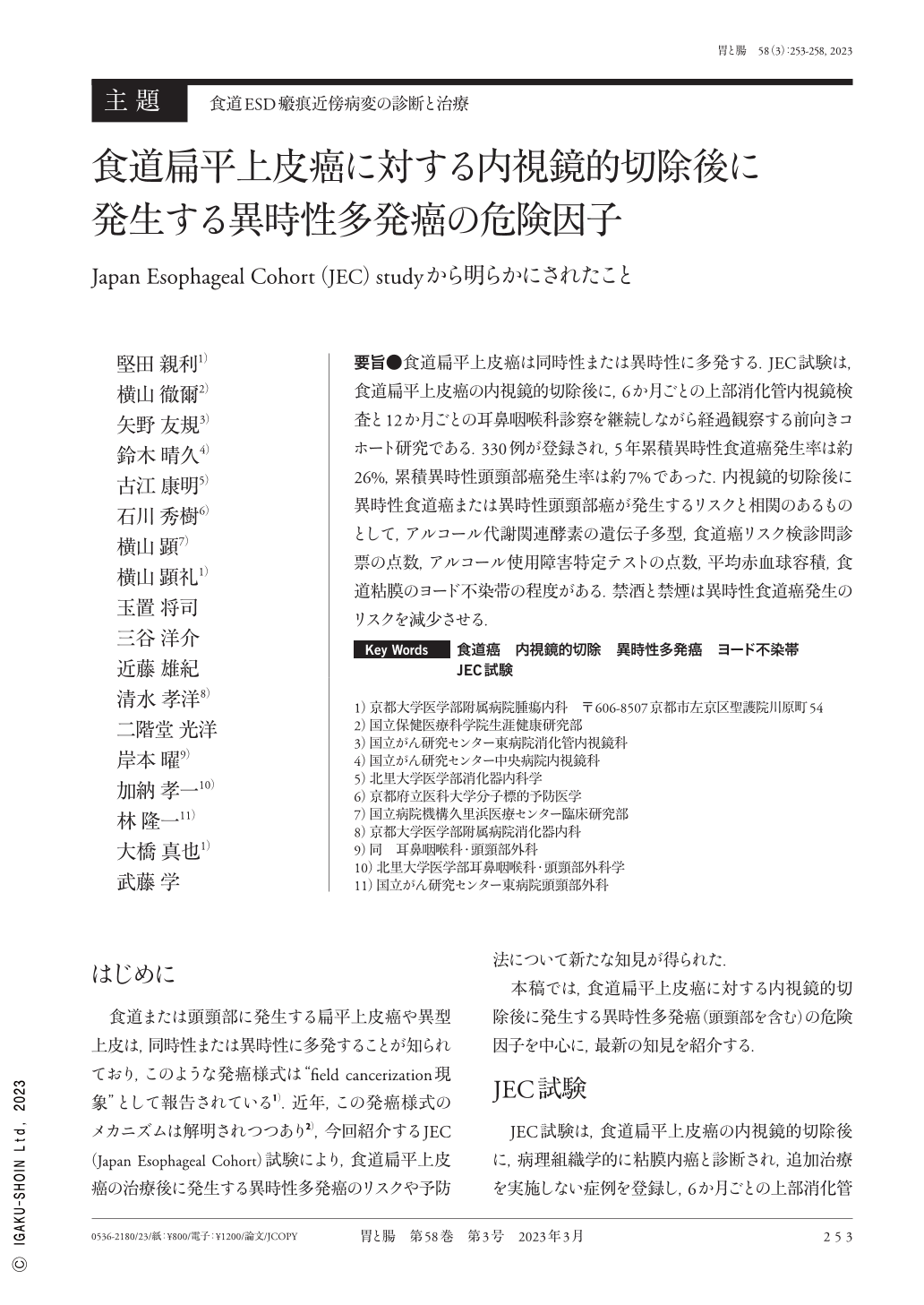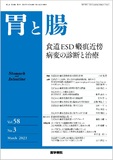Japanese
English
- 有料閲覧
- Abstract 文献概要
- 1ページ目 Look Inside
- 参考文献 Reference
- サイト内被引用 Cited by
要旨●食道扁平上皮癌は同時性または異時性に多発する.JEC試験は,食道扁平上皮癌の内視鏡的切除後に,6か月ごとの上部消化管内視鏡検査と12か月ごとの耳鼻咽喉科診察を継続しながら経過観察する前向きコホート研究である.330例が登録され,5年累積異時性食道癌発生率は約26%,累積異時性頭頸部癌発生率は約7%であった.内視鏡的切除後に異時性食道癌または異時性頭頸部癌が発生するリスクと相関のあるものとして,アルコール代謝関連酵素の遺伝子多型,食道癌リスク検診問診票の点数,アルコール使用障害特定テストの点数,平均赤血球容積,食道粘膜のヨード不染帯の程度がある.禁酒と禁煙は異時性食道癌発生のリスクを減少させる.
Patients with ESCC(esophageal squamous cell carcinoma)develop synchronous or metachronous multiple cancers. The Japan Esophageal Cohort study is a prospective cohort study enrolling ESCC patients who underwent endoscopic resection. Esophageal and head and neck endoscopic examinations were repeated every 6 months. An otolaryngologist underwent local examinations to detect HNSCC(head and neck squamous cell carcinoma), repeated every 12 months. The 5-year cumulative metachronous ESCC and HNSCC incidence rates were 〜26% and 7%, respectively. Genetic polymorphisms for alcohol metabolism, health risk appraisal model for predicting the ESCC risk based on their alcohol flushing, Lugol-voiding lesions, mean corpuscular volume, and alcohol use disorders identification test were closely associated with the development of esophageal and head and neck metachronous cancer. Drinking alcohol and smoking cessation significantly reduced the risk for the development of esophageal metachronous cancer.

Copyright © 2023, Igaku-Shoin Ltd. All rights reserved.


